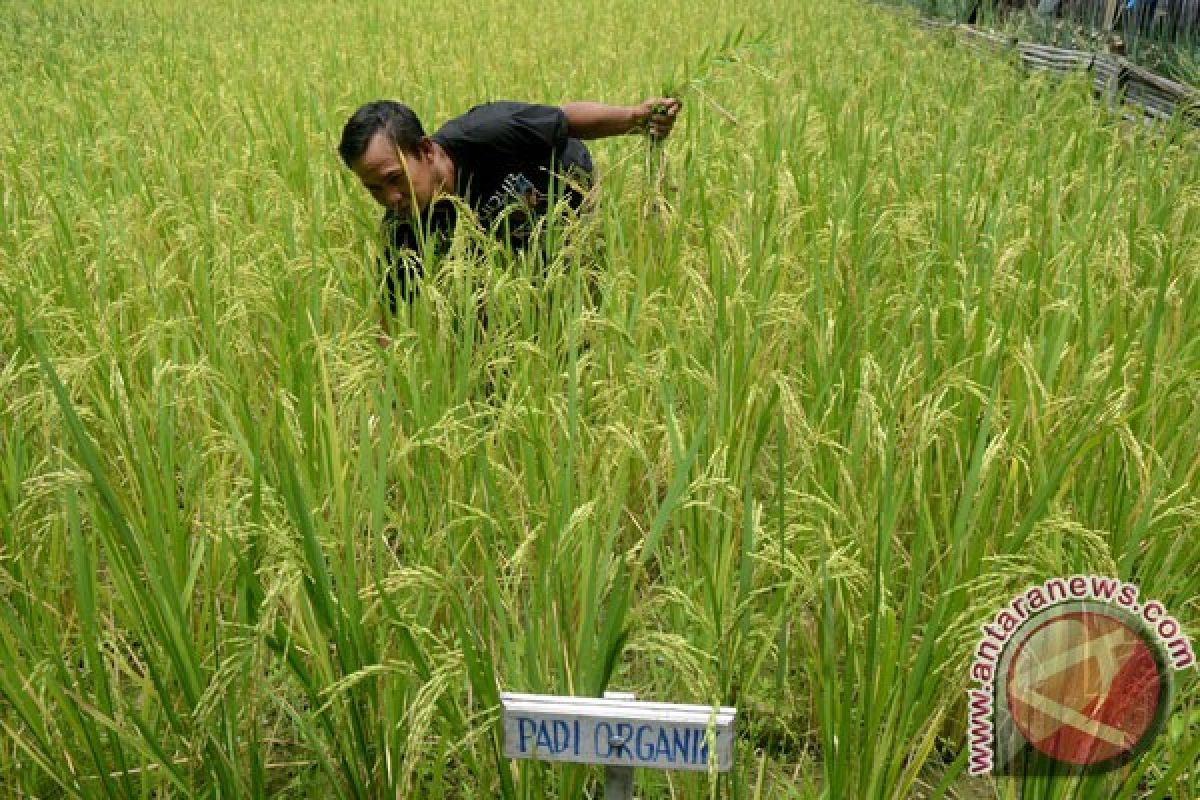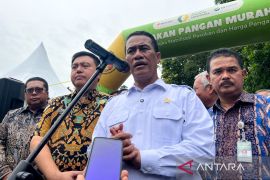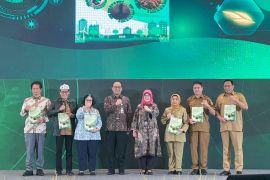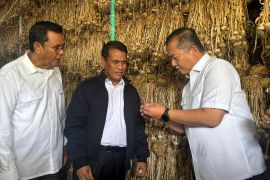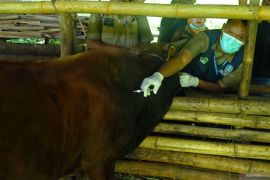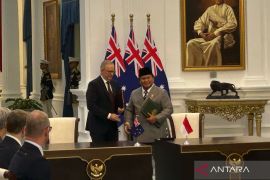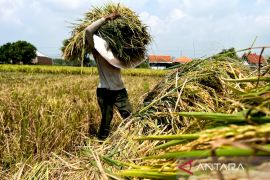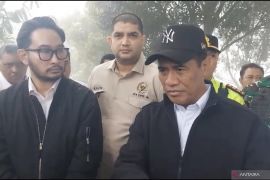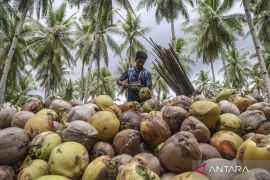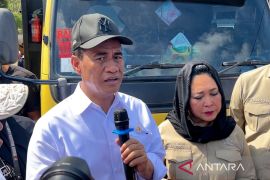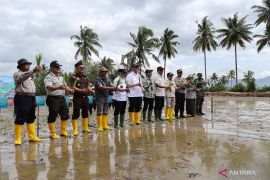In an effort to advance Indonesias agricultural sector, President Joko Widodo (Jokowi) held a meeting on Wednesday to discuss the development of the countrys agricultural and plantation sectors.
"The government is determined to improve the welfare of the people, particularly farmers, who work in the plantation and agricultural sectors," noted President Jokowi.
In the first six months of Jokowis administration, the government claimed to have been able to successfully expand the countrys rice fields by 700 hectares.
"We were evaluating our work during the October 2014-March 2015 period, and we found that we have been able to expand agricultural land by 700 hectares. God willing, it can produce an additional harvest of three million tons," Agriculture Minister Andi Amran Sulaiman revealed after attending the meeting with the president.
The government hopes that its efforts to develop the agricultural sector would ultimately free the country from being flooded by imported food products. This was also emphasized by Minister for Disadvantaged Village and Transmigration Marwan Jafar.
Minister Jafar noted that the influx of imported agricultural goods can be avoided by expediting the countrys agricultural development to strengthen food resilience.
"In the long run, we have to be able to significantly increase the export of agricultural products to the international markets and accelerate the development of national food resilience," stated Minister Jafar while addressing a meeting with the executives of the Indonesian Farmers Association (HKTI) on Wednesday.
As part of President Jokowis Nawacita (a Sanskrit term for nine national priority programs) concept, agriculture has been a priority sector. Through this program, the government has set a target to achieve food self-sufficiency by 2017.
However, according to a chief researcher, Indonesia should not harbor doubts about extending protection and subsidy to its agricultural sector to accomplish its goals.
"Advanced countries have, since the beginning, done this (award subsidies) to protect their farmers. Indonesia should also do that," Prof. Dr Wayan Windia, the head of the Subak Research Center of the Denpasar-based University of Udayana, stated in Bali recently on March 28.
He said the International Monetary Fund (IMF) has offered and even urged Indonesia to award subsidies to protect its people, mainly by imposing an export subsidy policy in times of crisis.
Advanced countries have adopted two approaches to protect their people through import tax and export subsidy policies. The import tax aims to increase the price of imported goods. Thus, the domestic prices of goods are high and stimulate the growth of domestic production. In the meanwhile, the export subsidy is aimed at boosting exports.
He pointed out that currently, free trade did not allow the imposition of import tax policy, and therefore, advanced countries imposed export subsidy.
Given this situation, less developed countries, which are usually weak, will be forced to import goods having relatively lower prices in the global market. The prices are lower as a result of the export subsidy.
Windia said the prices of imported goods in Indonesia were low, even lower than Indonesias cheap domestic products belonging to the same categories.
This was also prevalent in the agricultural sector and had proved to be disadvantageous for the local farmers.
Therefore, Windia proposed that the government should provide export subsidy for its agricultural products, so that Indonesia is able to face global competition.
However, what is of greater importance now is the development of plantation and agricultural products to create food resilience as a stepping stone for competing in the global market.
For achieving food sovereignty, the government is providing fertilizer and seed subsidies, and expanding agricultural land.
"The government is providing Rp28 trillion in fertilizer subsidy and Rp2 trillion to expand agricultural land by five million hectares," Minister Jafar remarked.
President Jokowi has previously expressed his strategic idea to provide nine million hectares of land to 4.5 million farmers. This means that each farmer will get two hectares, thereby increasing their land from the previous 0.8 hectare each.
According to Jafar, through its plan to expand farming land, the government can expedite its goal of self-sufficiency in rice, maize, soybean, and other agricultural products.
Agriculture Minister Andi Amran Sulaiman stated that the government has also planned to open one million hectares of new palm oil plantations in the border areas and 500 thousand hectares of food estates in West Kalimantan.
"The crops to be planted in the food estates include maize and soybeans," the agriculture minister said.
The minister noted that the realization of these programs will improve the prosperity of farmers. "If all these programs are realized, the welfare of the farmers will be improved," the minister pointed out.
After all, Indonesia farmers, which currently account for about 60-70 percent of the population, are still living in backward conditions. So, they all need protection, remarked HKTI Chairman Oesman Sapta Odang.
"Farmers need to be encouraged, so that production could be increased to offset imports. The countrys prosperity can only be created if its farmers welfare is improved," remarked Odang.
They need to be encouraged in order to advance the agricultural sector. Moreover, based on data from the Central Bureau of Statistics, the number of farm workers had narrowed from 31 million in 2003 to 26.5 million in 2013 or around 500 farm families had changed their livelihood every year due to the grim prospects in the agricultural sector.
Therefore, Prof. Dr Wayan Windia suggested that Indonesia should not nurse doubts about extending protection and subsidy to its agricultural sector to increase the competitiveness of its goods and improve the welfare of farm workers.
(T.A014/INE)
EDITED BY INE
(H-YH)
(A014/KR-BSR/H-YH)
Reporter: Andi Abdussalam
Editor: Jafar M Sidik
Copyright © ANTARA 2015
